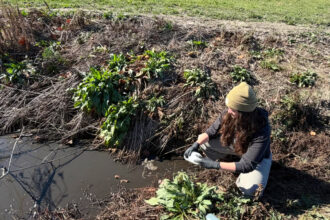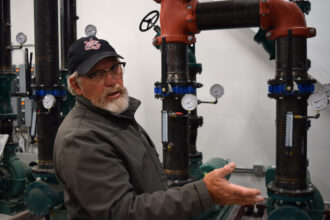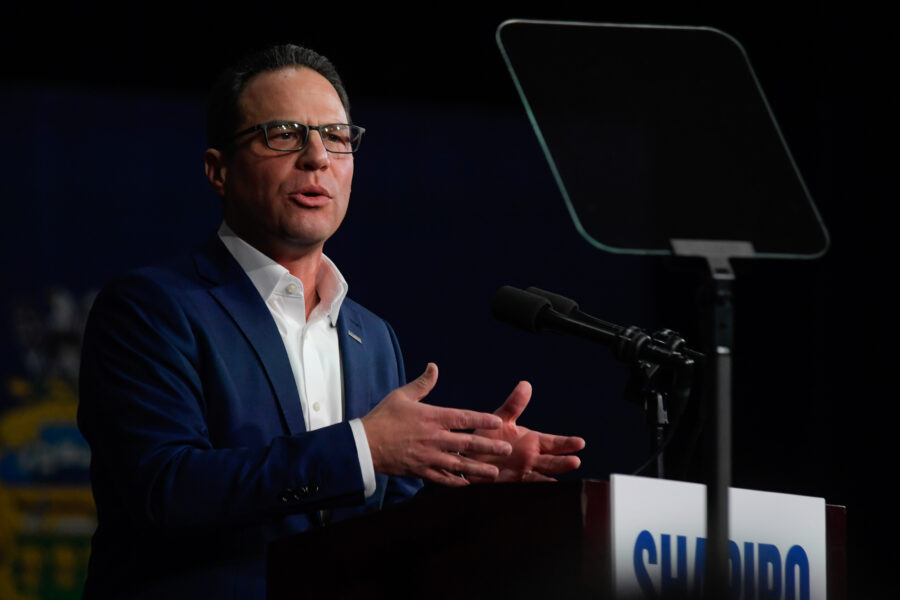ExxonMobil drew tough questions and skeptical responses from a federal judge on Thursday as it urged her to shut down two state investigations into whether the oil giant misled investors and the public about climate change risks. The judge’s inquiries suggested the company had failed to build a strong enough case to halt the probes.
U.S. District Judge Valerie E. Caproni pressed Exxon’s lawyers to demonstrate how the investigations by the attorneys general of Massachusetts and New York are politically motivated efforts to suppress its free speech, as the company claims.
“I can expect you to come forward with something that doesn’t require wild leaps of logic,” she told Exxon’s lawyers.
The two attorneys general, Eric Schneiderman of New York and Maura Healey of Massachusetts, have asked the judge to dismiss Exxon’s lawsuit. Caproni gave them until Dec. 21 to file additional written arguments. Exxon will then have until Jan. 12 to respond.
Caproni’s tough questioning of Exxon and the tight schedule for the parties to argue the legal points of dismissing the case suggest the judge is close to reaching a decision, said Tom McGarity, a University of Texas law professor who has been following the case.
“It’s hard to say she is sending a direct signal about what side she will rule for,” he said. “But it sounds like she wants this resolved quickly and that she’ll seriously consider a motion to dismiss.”
Investigations into What Exxon Knew
The hearing in a Manhattan court was yet another step in the nearly two-year battle by Exxon to thwart investigations into how the company represented its understanding of the risks climate change poses to investors and potential investors. The time frame in question includes the years when Rex Tillerson, now U.S. secretary of state, was Exxon’s chief executive. (News reports today suggest Tillerson could be pushed out as secretary of state in the coming weeks.)
Caproni heard arguments in April and has been reviewing hundreds of pages of written arguments submitted by the attorneys general and Exxon. The case had previously been handled by a Texas judge who transferred it to New York earlier this year.
The legal battle began in the wake of an investigative series of stories, first by InsideClimate News and later by the Los Angeles Times, that disclosed Exxon was aware through its own scientific research of the consequences of climate change as early as 1977.
Melissa Hoffer, chief of the energy and environment bureau for the Massachusetts Attorney General’s office, said during the hearing that it was these investigations that helped bring Exxon to her office’s attention.
The two attorneys general have focused their investigations on how the company informed investors about the impact of future climate regulations on Exxon’s oil and gas reserves—estimates of the amount oil and gas it will be able to profitably extract in coming years.
Exxon’s Free Speech Argument
During the hearing, Caproni repeatedly asserted that the attorneys general have every right to probe whether the company committed fraud by failing to adequately disclose climate change risks. She also cast doubt on Exxon’s attempts to frame the investigation as a political witch-hunt.
“The attorney general of New York is a political animal,” she said. “He’s entitled to act like a political animal.”
Much of Exxon’s argument rested on a March 2016 press conference in New York where Schneiderman announced the formation of a coalition of attorneys general under the banner AGs United for Clean Power. The intent of the coalition was to hold Exxon and the fossil fuel industry accountable for contributing to climate change.
Exxon has argued that Schneiderman and Healey’s participation in the press conference and coalition show they are biased against the company. It claims they are abusing their power to punish Exxon because they disagree with the company’s climate change positions.
Caproni, pressing Exxon on that free speech argument, noted the company’s current support for action on climate change. “Your client currently accepts the existence of climate change,” she said, citing its support of the Paris climate agreement and a carbon tax. “What speech are they trying to suppress?”
Exxon attorney Justin Anderson told Caproni the company could have legitimate differences about the causes and severity of climate change. He said discussions of those differences were being suppressed by the attorneys general.
Much of the hearing centered around this question, with Caproni pressing Anderson for an explanation of why the investigations should not be allowed to proceed and then, at times, mocking his responses.
“If they’re wrong, they don’t have a case,” she said. “If they’re right, then Exxon should be held to account.”
About This Story
Perhaps you noticed: This story, like all the news we publish, is free to read. That’s because Inside Climate News is a 501c3 nonprofit organization. We do not charge a subscription fee, lock our news behind a paywall, or clutter our website with ads. We make our news on climate and the environment freely available to you and anyone who wants it.
That’s not all. We also share our news for free with scores of other media organizations around the country. Many of them can’t afford to do environmental journalism of their own. We’ve built bureaus from coast to coast to report local stories, collaborate with local newsrooms and co-publish articles so that this vital work is shared as widely as possible.
Two of us launched ICN in 2007. Six years later we earned a Pulitzer Prize for National Reporting, and now we run the oldest and largest dedicated climate newsroom in the nation. We tell the story in all its complexity. We hold polluters accountable. We expose environmental injustice. We debunk misinformation. We scrutinize solutions and inspire action.
Donations from readers like you fund every aspect of what we do. If you don’t already, will you support our ongoing work, our reporting on the biggest crisis facing our planet, and help us reach even more readers in more places?
Please take a moment to make a tax-deductible donation. Every one of them makes a difference.
Thank you,













